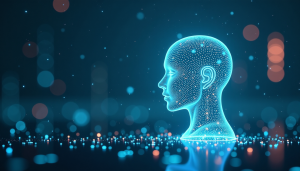- The Future of AI Adoption: Trends and Predictions for 2025Imagine a world where artificial intelligence (AI) seamlessly integrates into every corner of your life, revolutionizing industries,… Read more: The Future of AI Adoption: Trends and Predictions for 2025
- Navigating the Cultural Shifts Brought on by A.I. in Modern SocietyImagine a world where your conversation partner isn’t human, but a sophisticated algorithm seamlessly blending into your… Read more: Navigating the Cultural Shifts Brought on by A.I. in Modern Society
- Understanding AIs Cultural Disruption and IntegrationAs artificial intelligence (AI) rapidly transforms our world, it feels like we’re teetering on the edge of… Read more: Understanding AIs Cultural Disruption and Integration
- Navigating the Future: How AI Is Reshaping Human ResourcesAI’s role in HR encompasses various functions, from recruitment to talent management. Recruitment processes are becoming more… Read more: Navigating the Future: How AI Is Reshaping Human Resources




